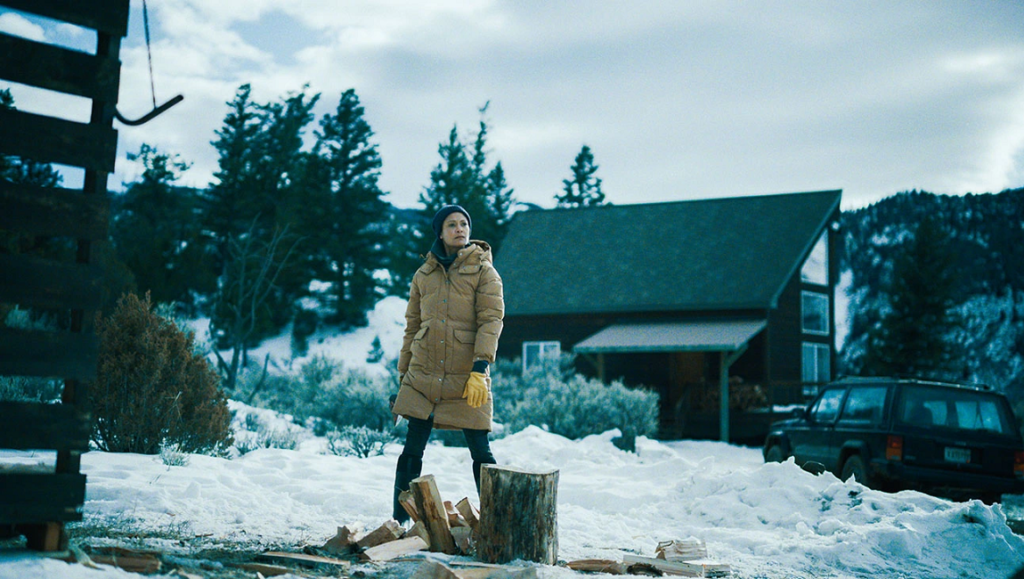God’s Country is an arrogant and painfully writerly project that is only occasionally uplifted on the strength of its visual flourish.
A classic sort of Sundance film, the type that could probably only fare well in front of zoned-out festival marathoners, Julian Higgins’ God’s Country is built off of a prime, program-ready premise that he proceeds to elaborate on to disastrous effect. Expanded from a lower profile, 2015 short starring Raymond J. Berry (and more intriguingly, Vincent Kartheiser and Q’orianka Kilcher), Higgins’ self-described neo-western has been reworked not only in durational terms, but in terms of its thematic scope, swapping Thandiwe Newton into the lead. It’s an appealing choice on paper, but one God’s Country fails to capitalize on, working from a screenplay that has some vague understanding of the complications introduced by race/gender swapping this protagonist, but is ultimately incapable of doing more than pointing them out.
That said, God’s Country doesn’t seem to lack much confidence in its vision, an undeservedly ambitious film that takes on several hot-button discourses despite not being able to speak to any of them in a meaningful way. Newton is Sandra, a dour oral communication professor teaching at a college in rural Montana that serves a sizable Native populace. The plot picks up at a particularly conflict-dense moment in Sandra’s life; grieving a deceased mother while pushing for a more diverse tenure track at her school in the face of an entirely white voting committee. Traumas and stresses are aggravated when a group of hunters (all white guys) adopts her driveway as a setting-off point for their outings without asking permission, and a favored TA (a young Native woman) confides in her a sexual harassment accusation pointed toward a friend and fellow professor.
Indeed, God’s Country’s scope is broad, but more for the sake of being broad, all that it takes in struggling to meaningfully cohere. Higgins sets out to comment on white privilege, toxic masculinity, institutional racism, police murders, class privilege, the U.S. government’s failings circa Hurricane Katrina, grooming/workplace harassment, and a good deal more, succeeding in the barest sense, falling short of saying anything essential. More glib than anything else, God’s Country sells itself as a contemporized western, but that hardly registers outside of the setting and one or two standoff sequences. Instead, the film’s action largely comes from narrative twists and upsets, banking on audiences being caught off guard by character revelations meant to subvert what the director assumes we will assume about the participants in God’s Country’s central conflict. It’s all a bit patronizing really, and made all the less worthwhile once you realize the film’s grand thesis is something to the effect of “we all contain multitudes” (rather snidely undercut in a violent, bombastic finale, but still). Modestly accomplished DP Andrew Wheeler brings some much-needed cinematic visual flourish to this painfully writerly project, but it’s not nearly enough to balance the arrogant ambitions of Higgins’ script.


Comments are closed.